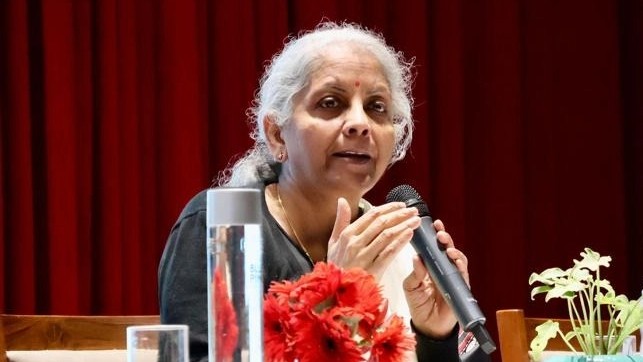Finance Minister Nirmala Sitharaman said states were not discriminated against in their dues.
“The fear that some states are being discriminated against is a politically flawed narrative,” she said Monday while responding to questions about decentralization of direct taxes and the share of the goods and services tax to states.
In her response to a question from Lok Sabha member NK Premchandran, Sitharaman said the GST law on compensation expired on June 30, 2022. “This means that giving compensation to bridge the gap between income assumed and the deficit ended in June. 30, 2022.”
The continued collection of the compensation tax was only to service the debt (and its interest) incurred to pay GST compensation to states during the Covid-19 pandemic, when collections were low, she declared.
“On the advice of the Attorney General of India, the board has taken the decision to extend the collection of compensation till the money borrowed and the interest payable thereon are repaid,” Sitharaman said.
The compensation tax that is levied now, beyond 2022, only concerns this period and will also technically end by March 31, 2026, according to the minister. « Hopefully we can repay even sooner. Any extension of compensation payment beyond the amount for which the loan was borrowed is not contemplated in the law. »
Finance Secretary TV Somanathan also hinted that the payment duration for clearing GST compensation loans could be shorter.
The lower gross borrowing target planned for FY25 is also explained by expectations of repayment of part of the maturing debt through the Goods and Services Tax Compensation Fund, according to budget documents presented on February 1.
The government aims to reduce its fiscal deficit level to 5.1% of GDP in FY25, thereby easing the pressure to achieve the 4.5% target by FY26. Estimates suggest revised, FY24 is expected to end with a fiscal deficit of 5.8%, which is revised downward from FY24 budget estimates of 5.9% of GDP.



